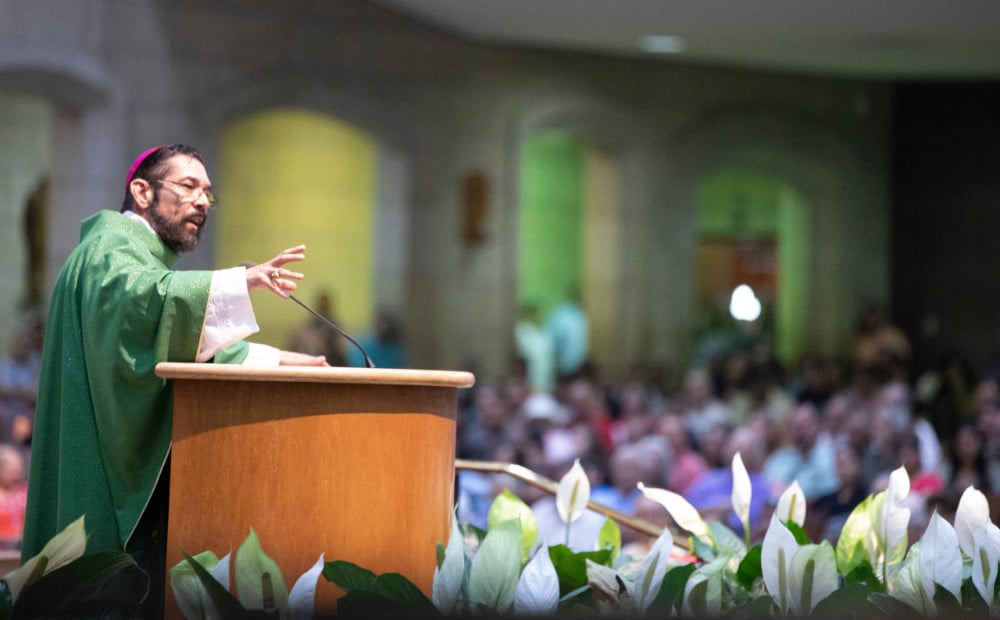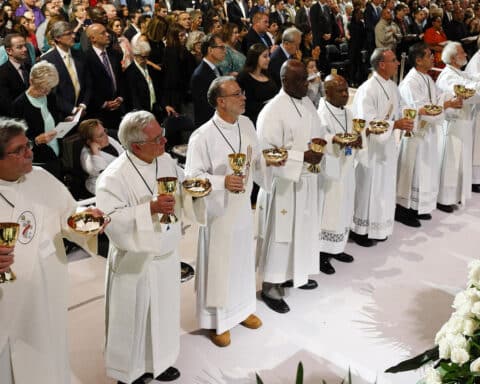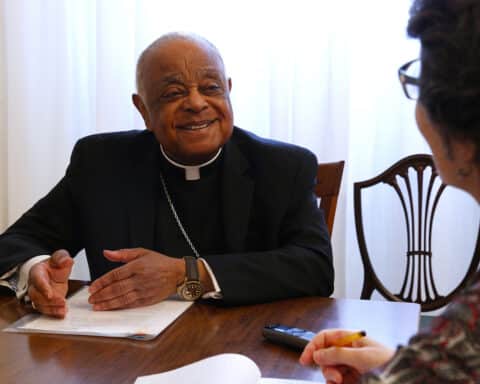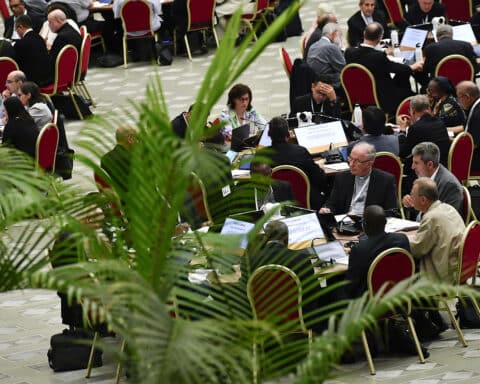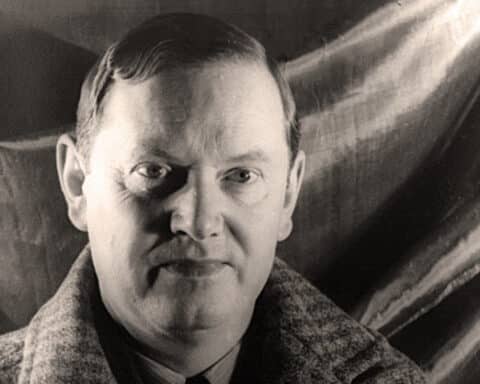The listening phase of the Ordinary Synod of Bishops in the United States has come to a close, and with its conclusion came the publication of a national “synthesis” report. Introducing the report — made available on Sept. 19 — Bishop Daniel E. Flores, chair of the U.S. bishops’ doctrine committee, wrote, “While not a complete articulation of the many topics and perspectives shared in the listening process, this synthesis is an attempt to express the broader themes that seemed most prevalent in the dioceses and regions of our country.”
According to the synod document, an estimated 700,000 people participated in the listening phase in the U.S., and more than 22,000 reports from parishes and other organizations were submitted. The “broader themes” included the “enduring wounds” many Catholics associate with the Church, from the clergy sexual abuse crisis, to the pandemic, to the divisions and lack of unity among Catholics and Church leadership, to the suffering of those on the margins of society.
While decisive assessments concerning the synod’s impact on the universal Church will have to wait until after next October’s Synod of Bishops in Rome, the National Synthesis has already raised important questions for the American Church. If left unaddressed, they may well grow beyond questions and become fault lines. Rather than allowing tensions to fester, three main concerns rise to the fore that, rightly understood, are opportunities to be embraced at any level.
Connection — People are longing for a connection from the Church, including from priests, bishops and parish workers. It is not effective if the only contact that Catholics have from their parish/diocese is about the offertory collection or the annual bishop’s appeal. Participants expressed a strong desire for the Church to enhance communion and participation by becoming more welcoming, as well as desires for lifelong formation and catechesis and for clear, responsible and transparent communications within and about the Church. Reaching out to people as they struggle with the issues of their everyday lives is the first step to creating disciples. Jesus reached out and invited the apostles to follow him, and they did. In imitation of Jesus, extending a “welcome” is not a superficial matter; it demands serious thought and reflection.
Accompaniment — This favorite word of Pope Francis can be overused to the point of becoming a buzzword. But, despite this, genuine accompaniment is a critical need in the Church today. With so many people on the margins, with so many people inadequately formed in the Faith and unable to articulate what the Church teaches and why (or why the Faith must be found at the center of their own lives), accompaniment by the Church is absolutely essential. Church leaders must listen to those who feel abandoned by the Church and offer to walk with them. But the road that we must walk with them is not a road to nowhere, or even necessarily a road to anyplace they think they want to go. The road must lead to Jesus Christ himself, who is Master, Way, Truth and Life. The road of true accompaniment is a road of formation, of understanding, of conversion.
Renewal — The synthesis indicates that nearly every group voiced concern about the departure of young people from the Church — and with good reason.Their departure is something that every local community can and must begin to address. Intentional outreach should be made to young people, with leadership opportunities within parish projects and committees. They should be consulted on their preferences for liturgy and fellowship, which may be very different from what older generations assume them to be. Pastors, parish personnel, and volunteers should both challenge and engage them. This means giving time and resources to their ideas and interests.
Overall, participants of the listening phase of the synod found the process to be encouraging — one that offered a “seed of renewal” during a challenging time in the Church’s history. “Through participation in the diocesan phase of the synod, the People of God have already begun to build the Church for which they hope,” the authors of the document wrote.
To a world longing for genuine relationships, we must build honest connections grounded in the truth of the Gospel. For those seeking meaning and purpose, we must offer accompaniment toward Christ. We must engage young people, being renewed by their fervor and hope. As the Church prepares to enter the “continental stage” of the synod, we must, each and every one of us, participate according to our state in life, and pray for the graces of conversion, that the synodal process may serve the building up of the Kingdom.
Our Sunday Visitor Editorial Board: Father Patrick Briscoe, Gretchen R. Crowe, Scott R. Richert, Scott Warden, York Young

